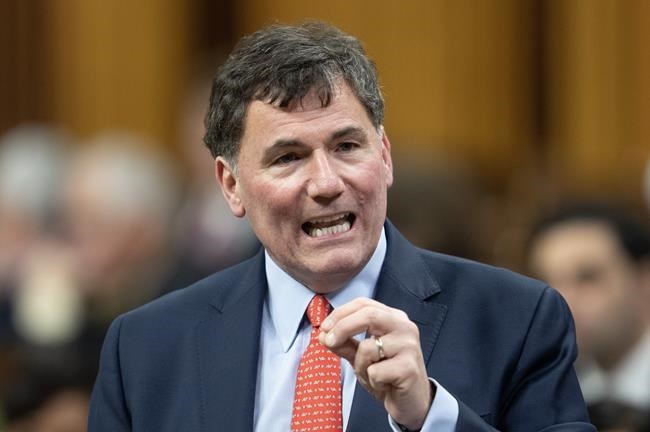OTTAWA — A federal inquiry into foreign interference will have full access to secret documents, even if some of that sensitive information can't be made public, says Public Safety Minister Dominic LeBlanc.
LeBlanc told the commission of inquiry Friday there are obligations under the law to shield certain information from disclosure.
A balance must be struck between being transparent about foreign meddling and protecting classified material, said LeBlanc, who is also democratic institutions minister.
"I wouldn't describe it as a tension — it's a balance," he said. "And it's not a binary choice. I think the government has to do both."
The hearings that took place this week on national security and the confidentiality of information were intended to help pave the way for the commission's next public sessions, likely to take place at the end of March.
The March hearings will focus on the substance of allegations of foreign interference by China, India, Russia and others in the 2019 and 2021 federal elections. An initial report of findings from the commission is due May 3.
The inquiry will then shift to broader policy issues, looking at the ability of the government to detect, deter and counter foreign interference targeting Canada's democratic processes. A final report is expected by the end of the year.
Allegations of Chinese interference in recent elections — suggestions fuelled by anonymous leaks to the media — led to a chorus of calls to hold the public inquiry.
A Canadian Security Intelligence Service probe of the leaks, launched last year, continues in parallel and in co-ordination with an RCMP criminal investigation, CSIS spokesperson Lindsay Sloane said this week.
"As the investigation is ongoing, I am unable to speak to specifics or provide an update at this time. What I can tell you is that CSIS takes any allegations of security breaches, including the unauthorized disclosure of classified information, very seriously."
Federal lawyers have advised the inquiry that the public release — through the ongoing commission process — of detailed intelligence about interference threats from China and others would risk exposing vital secrets.
That risk, they say, is compounded by the "mosaic effect" — where adversaries track and piece together small pieces of intelligence over a long period to reveal a clearer picture.
It could jeopardize security around intelligence gaps, methods of operation, foreign partnerships and identities of CSIS contacts and human sources, the lawyers said in correspondence with the commission that was tabled this week at the inquiry.
The inquiry has already had a chance to see several classified documents concerning foreign interference. In a preliminary exercise, the inquiry asked the government to review 13 of the records with an eye to preparing them for public release.
The review took place on an expedited basis, but still required more than 200 person-hours to complete — a level of effort that is not sustainable over the longer term, the federal lawyers said in their report to the commission. "It is clear that redactions of documents on a large scale will not be a productive way forward in the time frame allotted."
The lawyers suggested options including the release of some material with redactions, publication of summaries of "a limited number of documents or topics" and closed-door hearings that would be followed by release of a public summary.
LeBlanc said Friday he has confidence in the federal officials who have been instructed to co-operate with the commission over the next several months.
"The government will obviously do everything that we need to be a responsible and efficient partner in the work that the government's asked you to do."
There's a big difference between the commission having access to information about foreign interference and the public having access, said Jon Doody, a lawyer for the Ukrainian Canadian Congress, one of the hearing participants.
"The public nature of this inquiry must exist in more than just name. The public must be provided with as much information as possible," he said during a round of closing comments Friday.
"The best defence against foreign interference is an educated and informed public."
In May of last year, the federal government confirmed a media report that CSIS had information in 2021 that the Chinese government was looking at ways to intimidate Conservative MP Michael Chong and his relatives in Hong Kong.
More recently, Global Affairs Canada said it believes Chong was the victim of an online smear campaign, which the department suspects was carried out by Beijing.
China maintains that it never interferes in Canada's internal affairs.
Chong has been granted standing at the inquiry, and his lawyer, Gib van Ert, said Friday the commission's proceedings are an opportunity for the Canadian public to understand the true extent of foreign interference.
"It won't be enough, commissioner, for you and your counsel to learn what has gone wrong, and to write it up in some confidential annex that most people will never see. Because it is for the public."
This report by The Canadian Press was first published Feb. 2, 2024.
Jim Bronskill, The Canadian Press



